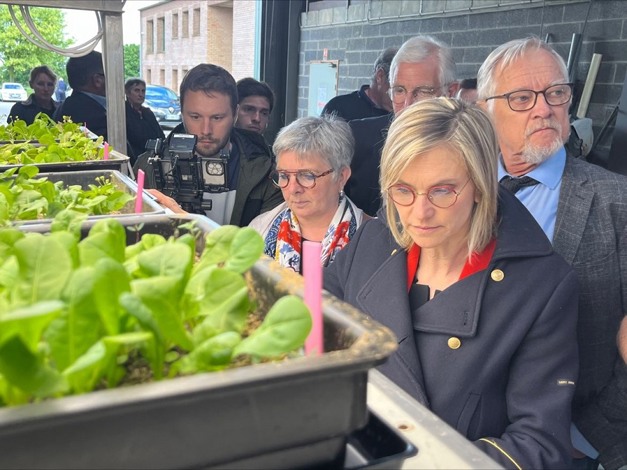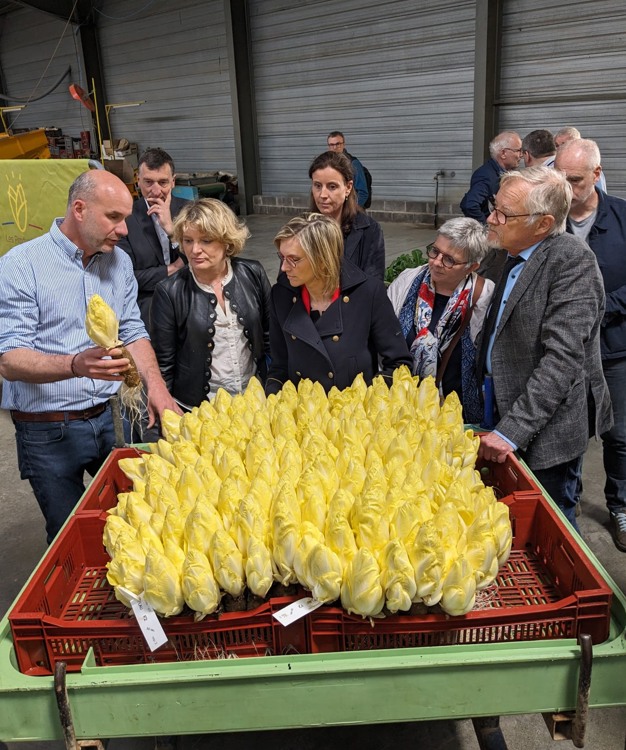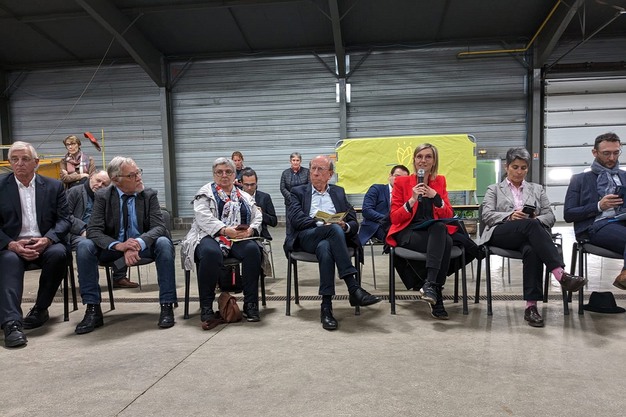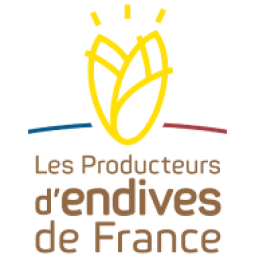On the 16th of May, French minister of agriculture Agnès Pannier-Runacher visited the APEF headquarters in Arras to meet with endive growers. Faced with the withdrawal of three active ingredients, endive producers are looking for solutions. Pierre Varlet, managing director of the French Endive Producers' Association, takes stock of the situation.
 Agnès Pannier-Runacher in the Hauts-de-France region on May 16th. This visit is "a continuation of the discussion we have been having since she joined the government. She is our privileged interlocutor on this issue," explains the director / © Communauté urbaine d'Arras.
Agnès Pannier-Runacher in the Hauts-de-France region on May 16th. This visit is "a continuation of the discussion we have been having since she joined the government. She is our privileged interlocutor on this issue," explains the director / © Communauté urbaine d'Arras.
No more Bonalan or Safari
For several months now, producers have been constantly alerting about their situation. Last February, 350 people gathered at the headquarters of the Hauts-de-France region to discuss the problems and issues faced by the sector and "make elected representatives aware of their difficulties. Growers are starting to ask a lot of questions about their strategy for next year, due to a lack of visibility." Benfluralin (Bonalan) and Triflusulfuron-methyl (Safari), used to control goosefoot, have now been banned. Spirotetramat (Movento), used against wooly adelgid, was due to be used for the last time this year, but the French public authorities have authorized its use until October 2025.
 Viballa trials
Viballa trials
"So far, we do not have any solution." The trials are multiplying (currently 40 trials for 9 different molecules) but for the moment, the results are not conclusive. "We have set up an equalization fund to encourage our growers to carry out full-scale tests in their fields," explains Pierre Varlet. Thanks to a state aid of 96,000 euros [103,814 USD], endive growers are currently testing Viballa (halauxifen-methyl), used on sunflowers. If the trials are successful, the molecule could be authorized as early as 2025. APEF is also calling on service providers to carry out further tests in order to multiply its chances.
Other solutions
APEF is also looking at what is being done in neighboring countries. The association could use the mutual recognition procedure (European regulation of 2009), which would enable endive growers to use a product authorized in other member states, such as pendimethalin, which is authorized in Belgium.
Another possible avenue is aid under the PARSADA plan (strategic action plan for anticipating the potential European withdrawal of active substances and developing alternative techniques for crop protection), with a budget of 146 million euros [158 million USD] per year over 5 years, and in particular the Déserherbendive project submitted in January 2024 to finance experimental work.

Endive growers are currently finishing the season "with a rather low supply and firm prices that are holding up. We are hoping for weather conditions to improve in order to resume sowing, which has not been completed yet," explains the director of APEF, which will be present at the Terres en Fête agricultural show near Arras on June 7th, 8th and 9th.
 For more information:
For more information:
Pierre Varlet
APEF
2, rue des Fleurs
62000 Arras
Phone: +33 (0) 3 21 07 89 89
Email: [email protected]
